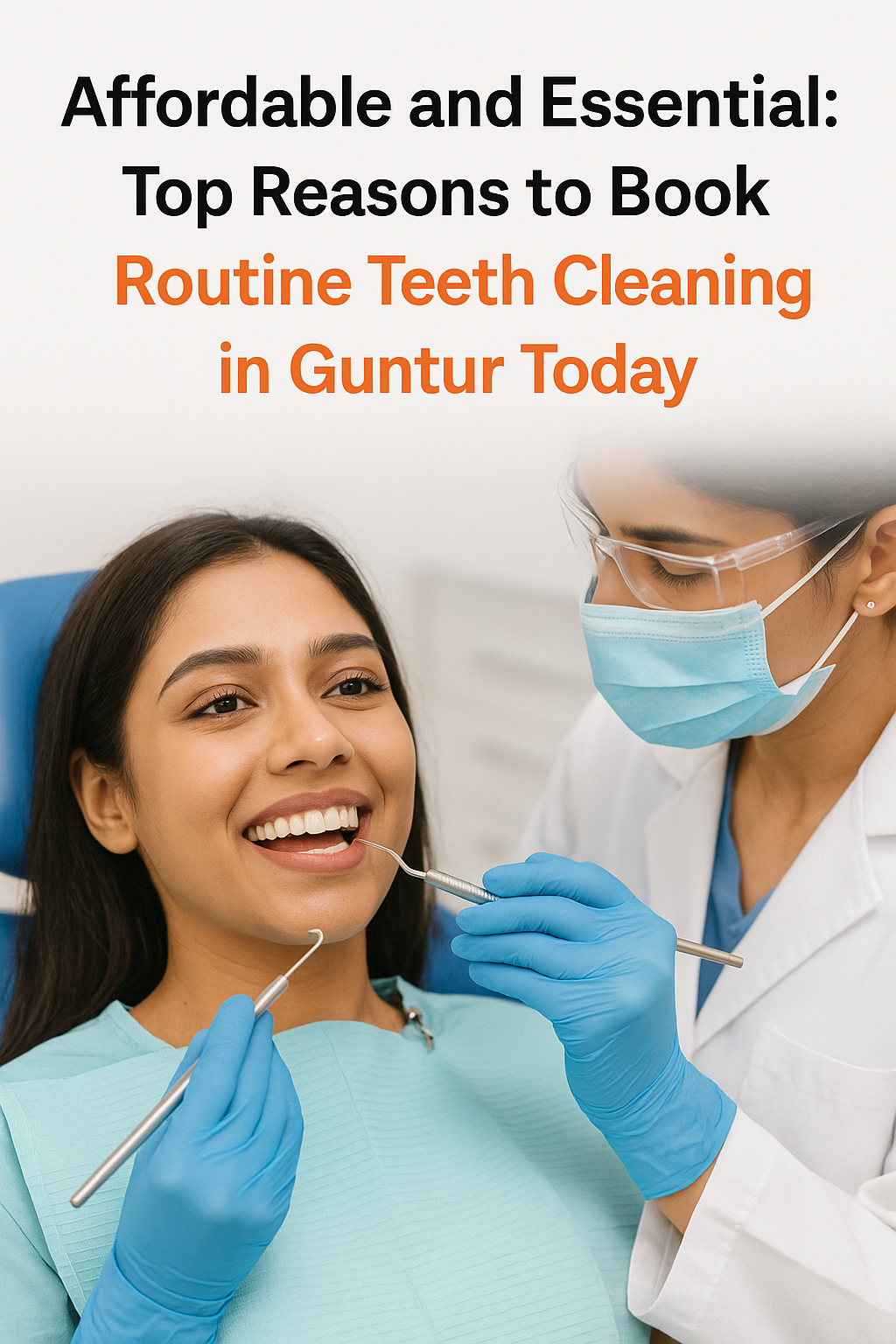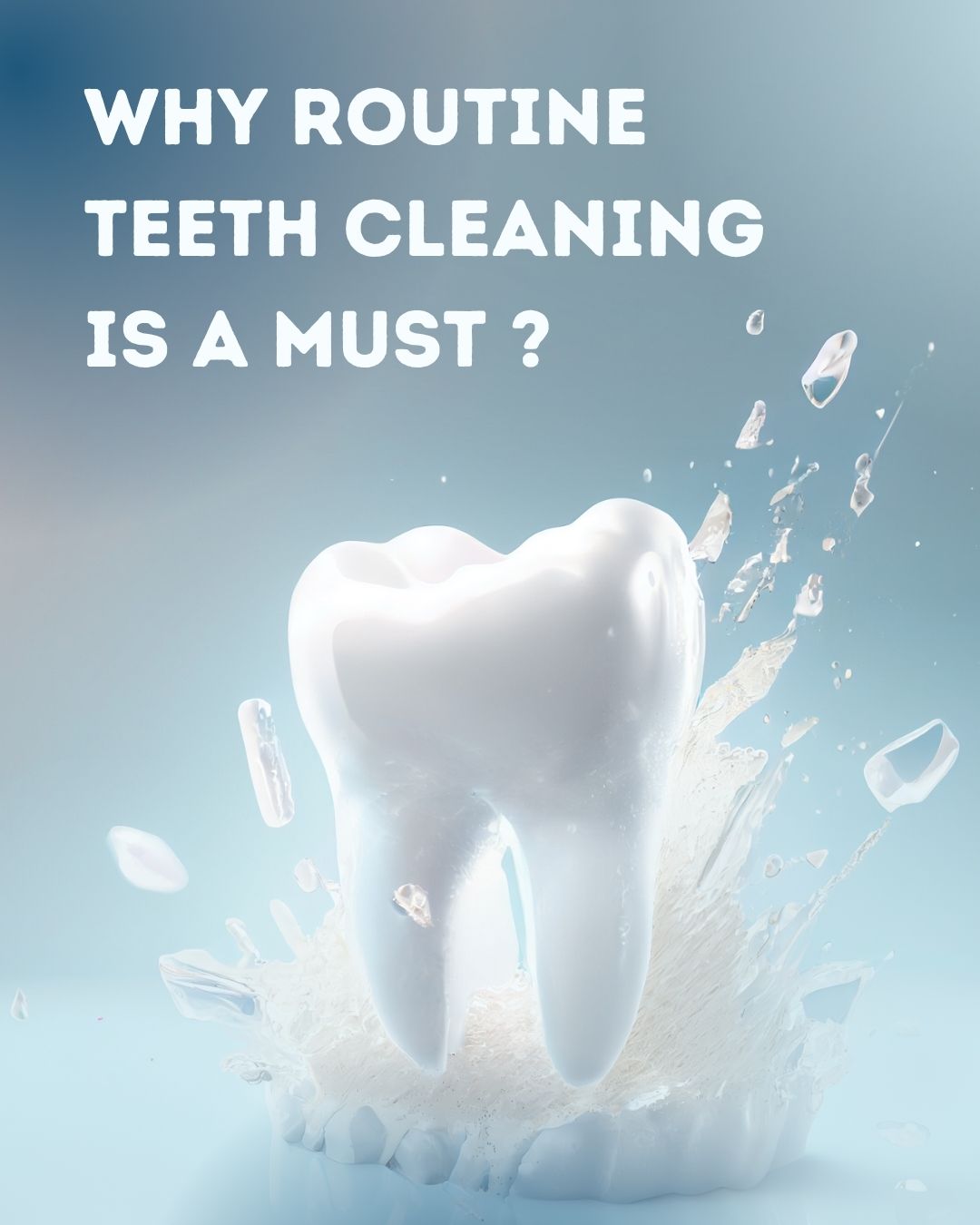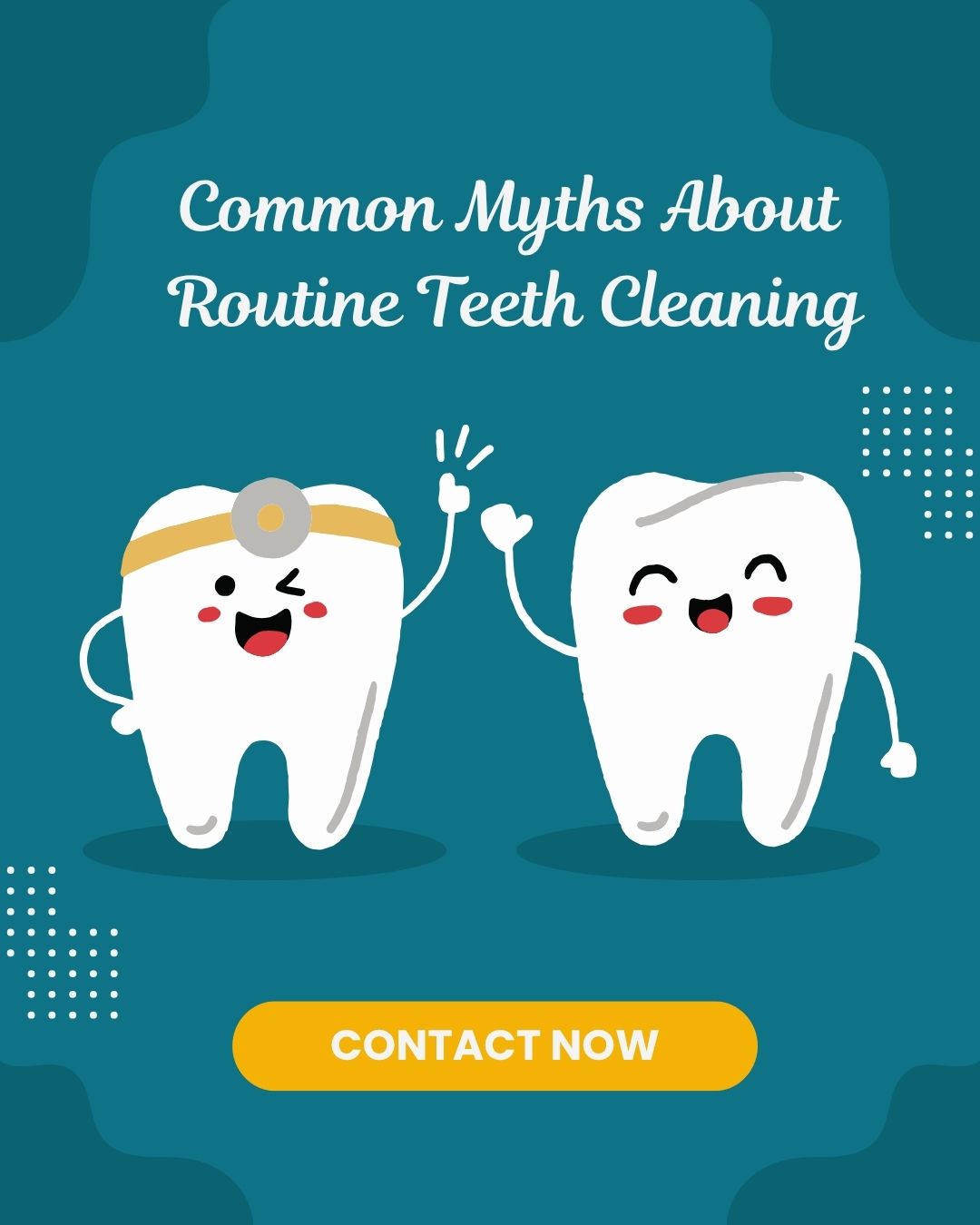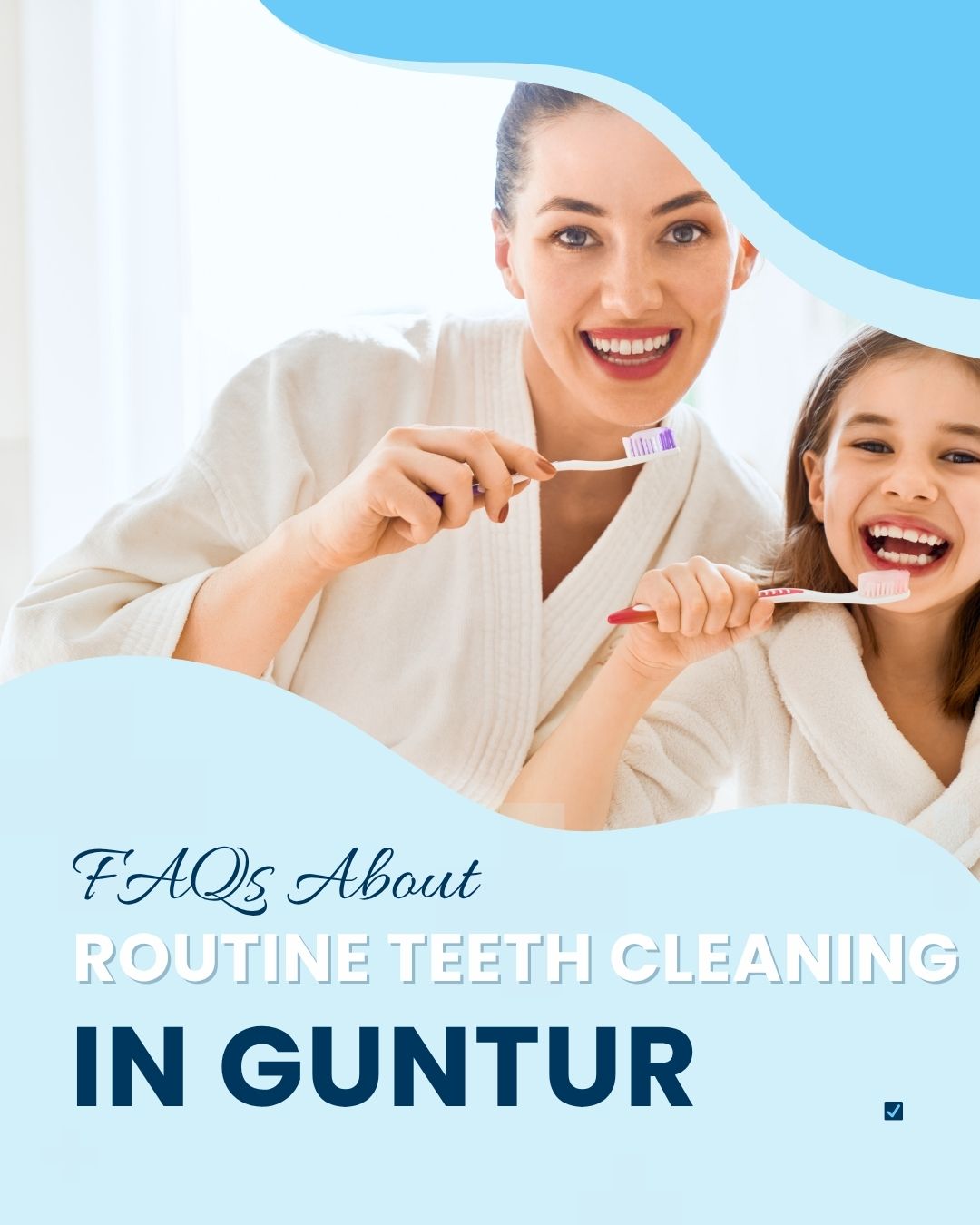
Routine teeth cleaning is a preventive dental procedure aimed at removing plaque, tartar, and stains from your teeth. It’s usually performed by a dental hygienist or dentist using specialized tools to ensure your mouth stays clean and healthy. Unlike treatments for specific oral diseases, this cleaning is meant for maintenance and prevention.
Routine cleaning focuses on the visible parts of your teeth and just beneath the gum line. Deep cleaning, on the other hand, goes deeper to treat gum disease, targeting the roots and pockets that develop in advanced dental conditions. Regular cleaning is for everyone; deep cleaning is for those already dealing with gum problems.

Routine cleanings prevent cavities, gingivitis, and periodontal disease by eliminating harmful bacteria and buildup before they become serious problems.
Dentists often catch early signs of decay, infections, or even oral cancers during a routine visit, making it a valuable diagnostic opportunity.
Oral health is linked to heart disease, diabetes, and respiratory conditions. Keeping your teeth clean helps reduce risks linked to chronic illnesses.
Your dentist will examine your mouth using a mirror and probe to check for cavities, gum inflammation, or tartar accumulation.
Using a scaler, the hygienist removes plaque and tartar from around the gum line and between teeth. This part is crucial for gum health.
After scaling, your teeth are polished with a gritty paste to remove stains. A fluoride treatment may follow to strengthen enamel.
The American Dental Association recommends professional teeth cleaning every six months. However, this can vary based on individual needs.
If you smoke, have diabetes, wear braces, or are prone to cavities, your dentist may suggest more frequent cleanings—perhaps every 3–4 months.

Modern techniques make cleanings nearly painless. Slight discomfort may occur, but it’s usually minor and temporary.
Teeth cleaning removes stains and buildup, while whitening focuses on changing the actual color of your teeth.
Brushing is essential but can’t reach tartar or all plaque. Professional tools and expertise are needed for complete cleaning.

Choose clinics with experienced dentists, modern equipment, positive patient reviews, and clear pricing.
Some renowned dental clinics in Guntur include Partha Dental, Apollo Dental, and Smile Dental Guntur. They’re known for affordability, hygiene, and skilled professionals.
Routine cleanings in Guntur generally cost between ₹500–₹1,500 depending on the clinic and whether additional services are included.
Many dental clinics in Guntur accept major health insurances and offer flexible payment plans for uninsured patients.
Brush and floss your teeth. Avoid eating just before the appointment. Make a list of any symptoms or concerns you want to discuss.

It’s normal to feel slight sensitivity after a cleaning. Avoid very hot or cold foods for a day and use a sensitivity toothpaste if needed.
Stay away from staining foods like coffee and wine immediately after. Brush twice daily and floss to maintain cleanliness.
Kids should start regular cleanings as early as age 1 or after their first tooth erupts. Seniors, especially those with dentures, still need cleanings to maintain gum health and monitor for other issues.
Clinics now use ultrasonic scalers and air polishers that reduce discomfort and are more effective than traditional tools.
Some Guntur clinics emphasize eco-friendly practices like reusable tools, water-efficient systems, and digital records to reduce paper waste.
Dairy, leafy greens, apples, and carrots help keep teeth clean. Sugary snacks, soda, and sticky foods promote decay and plaque buildup.
Drinking plenty of water aids saliva production, which naturally cleanses the mouth and prevents bacteria buildup.
“Got my teeth cleaned at Smile Dental—quick, clean, and friendly staff!” says Sunitha K., a local teacher.
“Partha Dental explained everything so well. No pain at all!” shares Ravi G., an IT professional.
Many locals report better breath, improved confidence, and a noticeable brightness in their smile after just one visit.
Routine cleaning maintains oral health, while cosmetic procedures like veneers or whitening focus on aesthetics.
Start with a cleaning before any cosmetic treatment to ensure a healthy foundation.

Yes, it’s not only safe but recommended. It prevents cavities and sets a foundation for lifelong oral hygiene.
2. Does insurance cover routine teeth cleaning in Guntur?Many Indian insurance plans include dental care; check with your provider or the clinic beforehand.
3. Can teeth cleaning remove bad breath?Absolutely! Removing plaque and tartar helps eliminate bacteria causing halitosis.
4. How long does the appointment take?Usually around 30 to 45 minutes, depending on plaque buildup and individual needs.
5. Are there side effects after cleaning?Mild sensitivity or gum soreness might occur but usually resolves within 24 hours.
6. Can pregnant women undergo routine cleaning?Yes, it's safe and even encouraged to prevent pregnancy-related gum issues.
Routine teeth cleaning in Guntur is more than just a cosmetic choice—it’s a necessary health investment. With affordable clinics, advanced technology, and experienced dentists available locally, now’s the perfect time to prioritize your oral hygiene. Don’t wait for problems to appear—book your appointment today and take the first step toward a healthier smile!